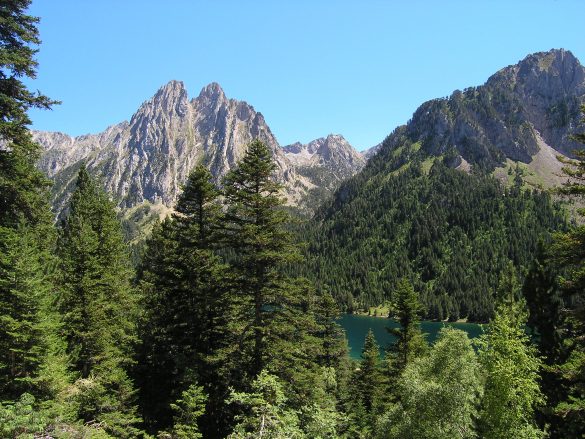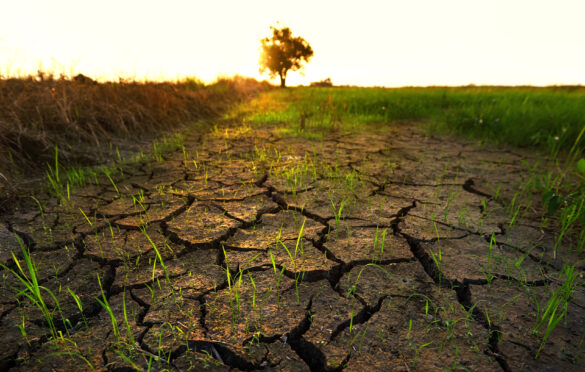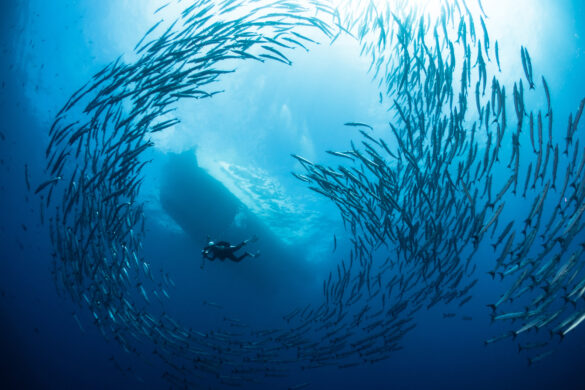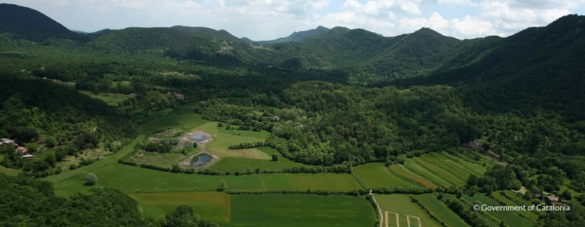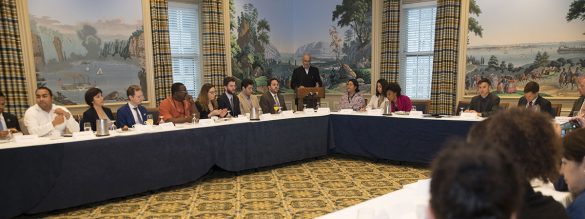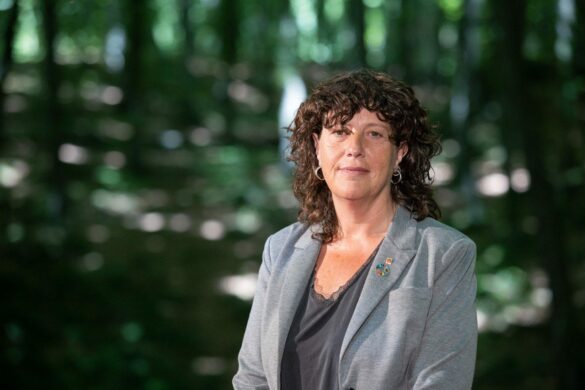Catalonia’s Commitment to the 2030 Agenda – Transform Catalonia, Improve the World
Catalonia is one of Spain’s most affluent and industrialised areas, with its own language and cultural identity. Catalonia has been committed to sustainable development for over 20 years, since the Advisory Council for Sustainable Development of Catalonia (CADS) was created in 1998.
CADS is the strategic advisory body of the Government of Catalonia on sustainability and works in consultation with experts and civil society, promoting dialogue between the government and other actors. The Council is made up of a President, a director and around 10-15 members selected by the Government. Participants serve for 2 years and act autonomously. The director of the council, Arnau Querault holds the Presidency of the European Environment and Sustainable Development Advisory Councils network (EEAC) since 2015, which is an observer member of the European Commission high-level multi-stakeholder platform on the implementation of the SDGs in the European Union.
The process of localising the SDGs into the fabric of Catalonia’s administration has been in-depth, inclusive and transparent.
The commitment and mandate of the Catalan Parliament
The Government of Catalonia is elaborating a National Agreement for the 2030 Agenda in Catalonia, which will pave the way to an alliance of public and private actors to achieve the SDGs in Catalonia through specific commitments. The Parliament of Catalonia has passed the Motion 20/XII committing itself towards the achievement of the SDGs and promoting the creation of this alliance. Furthermore, the Motion pledges the Sustainable Development Advisory Council to appear twice yearly in the Parliament to explain the attainment of the SDGs for the 2030 Agenda. It also pledges the Government to ensure periodic appearances by the regional ministers in each of the parliamentarian committees related to 2030 Agenda to take stock of the degree of attainment of the SDGs that are relevant to them.
The commitment of the Government: a National Plan for the 2030 Agenda
In 2015 the Government created an inter-ministerial working group on SDGs with the goal of localising the SDGs into the Catalan context. This was subsequently followed up in 2016 with a Government pledge to develop a National Plan for the implementation of the 2030 Agenda, which would outline the targets and indicators to measure progress towards sustainable development.
The same year, CADS launched The 2030 Agenda: Transform Catalonia, Improve the World report, with the aim of providing the Government of Catalonia with a full overview of the challenges that needed to be considered in preparing the plan. It was prepared with input from 60 experts. The importance of external insight should not be underestimated. In order to develop a clear understanding of the SDGs, knowledge of the specific areas and how they interlink can be used to build capacity, identify and draw focus to where the gaps are and how to fill them. Following the process of external consultation, the final report outlines in depth the international, European and Catalan contexts for each goal, as well as the issues with implementation in Catalonia and offers key recommendations for framing the SDGs in the local situation.
In 2017, 13 Ministries were allocated to participate in a commission to lead the development of the plan, making sure it is workable across the entire Government and to ensure the vision matches the main SDGs adequately. The first draft was released in July 2017. It integrates the 17 SDGs and 169 UN targets into approximately 800 commitments for implementation both within and beyond Catalonia. The Plan is expected to be validated by the Interministerial Commission in charge of the Plan at the beginning of July 2019, prior to its approval by the Government.
Some of the initiatives that are being implemented to localise the SDGs in Catalonia’s plan include:
1 – A universal guaranteed minimum income law
3 – Universal access to public health
5 – A gender equality observatory
9 – A circular economy strategy
12 – A programme to halve food waste by 2020 (already underway)
13 – The Climate change act
14 – A new maritime strategy
15 – Protected areas to cover more than 30% of the territory
16 – 1.6m EUR to go to the UN post-conflict multi-partner trust fund for Colombia.
Aligning existing policies in collaboration with all ministries
Efforts are being made to break down the existing silos to ensure that the crosscutting nature of the SDGs can be reflected in the Government’s response. All Ministries also participate in a technical committee to take this work forward, assisted by CADS. This committee works across 17 groups aligned with the SDGs with relevant ministries, and whilst no one Ministry plays a leading role, there are instead SDG coordinator departments responsible for each of the SDGs. The Territory and Sustainability department is coordinator for 5 SDGs in total.
The connection between SDG 11 and the New Urban Agenda, adopted in 2016 during the Habitat III Conference highlights how existing policies are being integrated into the new framework. A Decree for the elaboration of an Urban Agenda in Catalonia was approved. In order to establish this, a public-private body –the Urban Assembly of Catalonia – was created, which is composed of stakeholders relevant to urban governance and representatives from the private and public sectors.
The National Agreement for Energy Transition is another example of how progress can be delivered in collaboration. The agreement was arrived at in 2017 following the acknowledgement that dialogue was required to reshape the energy system. Consultation on the clean energy future of Catalonia was conducted with input from economic, social and energy partners, with the Ministries of the Government involved in energy policy and with the political parties. This effort will feed into realizing SDG goal 7 in Catalonia and aims to deliver 100% renewable energy by 2050.

